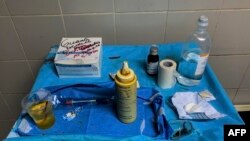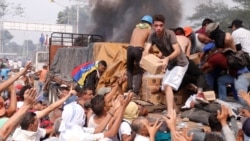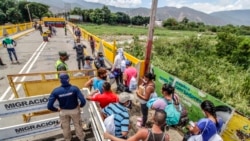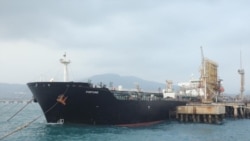“We have achieved a perfect 7+7,” Nicolas Maduro said during a televised appearance on October 25. His 7+7 intermittent quarantine system, under which the government alternates between easing restrictions and imposing them, was about to go through the quarantine phase, in which movements are restricted.
Maduro praised the strategy’s success. He also made a “very important scientific announcement”: The country had a medication to kill 100 percent of the coronavirus with no side effects.
The following day, Maduro tweeted a video with the same message, saying, “In Venezuela, we have given an example of the treatment of the coronavirus for all citizens,” and that “the overwhelming success of our method, the 7+7 Plus, has allowed us to protect the health of the people and advance in the progressive reduction of Coronavirus infections in the country.”
Although Venezuela has seen a recent decline in cases, Maduro’s claims leave a misleading impression by ignoring the long, chronic erosion of Venezuelan health care.
When the pandemic first hit Venezuela, it landed amid a perfect storm of economic, humanitarian and political crises that had already prompted an exodus of some 5 million people.
Venezuela’s triple-digit inflation continues a rampage, and many citizens rely on international humanitarian aid to survive. Years of underfunding and mismanagement crippled health care. The latest (2019) Global Health Security Index study of 195 countries ranked Venezuela 146th.
After nationwide quarantine orders failed to contain the outbreak in Venezuela – in part because people didn’t have access to basic necessities that would allow them to stay at home – Maduro's government introduced the 7+7 system in June.
Under this intermittent system, which is similar to one proposed in Israel, restrictions alternate between flexibly activating economic sectors for seven days, followed by a radical quarantine for seven days (where only essential sectors operate). But according to El Diario newspaper, 7+7 hasn’t been applied consistently nationwide, with some states not allowing reactivation of all sectors during the flexible week.
So far in the pandemic, Venezuela has reported more than 90,000 cases and 780 deaths. Although daily reported cases have dropped sharply from their August highs, they are still running at more than 450. Venezuela is the 50th most populous nation in the world and has the 54th highest cumulative case count as tracked by the Johns Hopkins University.
It is not clear to what extent the numbers reflect underreporting, particularly given the persistent lack of reliable testing in Venezuela. Since August, experts have said infection rates are growing faster than testing capacity. A lawmaker and medical adviser to opposition leader Juan Guaidó told the Reuters news agency the disparity creates an “artificial flattening of the contagion curve.”
Yet, despite some success in reducing infections, Venezuelans say that many people still don’t comply with measures such as social distancing. Some blame Venezuelans who are trickling back to their country to bringing the disease with them.
Maduro has criticized returnees, even calling them “bioterrorists.” They have been welcomed by security forces and detained in overcrowded quarantine centers, where they are "held under military guard for weeks or months for coronavirus tests or treatment with unproven medications,” according to The New York Times. One nurse who spent 70 days in centers, told the paper “[guards] told us we’re contaminated, that we’re guilty of infecting the country.”
Human Rights Watch and the Johns Hopkins University’s Centers for Public Health and Human Rights and for Humanitarian Health also found “overcrowded and unsanitary quarantine centers for the people returning, with little access to food, water, or medical care.”
Venezuela's health care system has severely deteriorated for nearly a decade. The Pan American Health Organization reported in 2018 that about 22,000 out of the country's 66,138 doctors (one-third of registered physicians) had left the country by 2014. In February, a Venezuelan general surgeon told U.S. public broadcaster PBS the country’s health care system was like "living in the 19th century, when the hospitals didn't have water, when there was no electricity.”
In June, the Venezuelan government, which couldn't supply its country with enough resources to fight the pandemic, received coronavirus aid from ally Iran. Shortages, however, continued to be reported.
As Polygraph.info reported in August, the nursing staff at Dr. Egor Nucete Hospital held a sit-down strike two days after Maduro posted a video on Twitter with the testimony of a member of the pro-government political organization Frente Francisco de Miranda (FFM) who “recovered from the Coronavirus, thanks to the treatments, care and care of all health personnel.”
The nursing staff refused to further treat coronavirus positive patients until those staffers were guaranteed proper biosafety equipment and supplies, along with “decent and optimal working conditions” to treat patients without putting themselves at risk.
A day after Maduro’s October tweets, Venezuelan news outlets published a video of night shift medical staffers of Luis Ortega hospital, in the city of Porlamar, speaking out about the lack of basic necessities – clean water, medication and protective gear – which they feared was driving the spread of the virus inside hospitals.
“We have absolutely nothing … Enough of the lack of respect for both the personnel and patients that are here in this institution,” one medical staffer said.
Earlier this month, Venezuela received a shipment of Sputnik V, Russia’s COVID-19 vaccine, and shortly afterward started clinical trials. The government also announced it was planning to receive "a few thousand doses of the Chinese vaccine” soon. COVID-19 is the disease caused by the coronavirus.
On October 25, Maduro boasted about the discovery of an anti-COVID medication, designed by scientists at the Venezuelan Institute for Scientific Research (IVIC). The scientists purportedly isolated and tested a molecule called DR-10, and certified its effectiveness “with all the necessary tests,” Maduro said.
The molecule, a derivative of ursolic acid which has previously been used to treat diseases like Hepatitus C, is being sent for evaluation by the World Health Organization (WHO), Maduro said.
PAHO confirmed to Polygraph.info that the Venezuelan health ministry reached out about studying DR-10. “This is the first step in the process of investigating a molecule that can, in the future, be used as a medicine,” the organization said. “PAHO is providing the necessary information to the Ministry to proceed with all the required steps."








